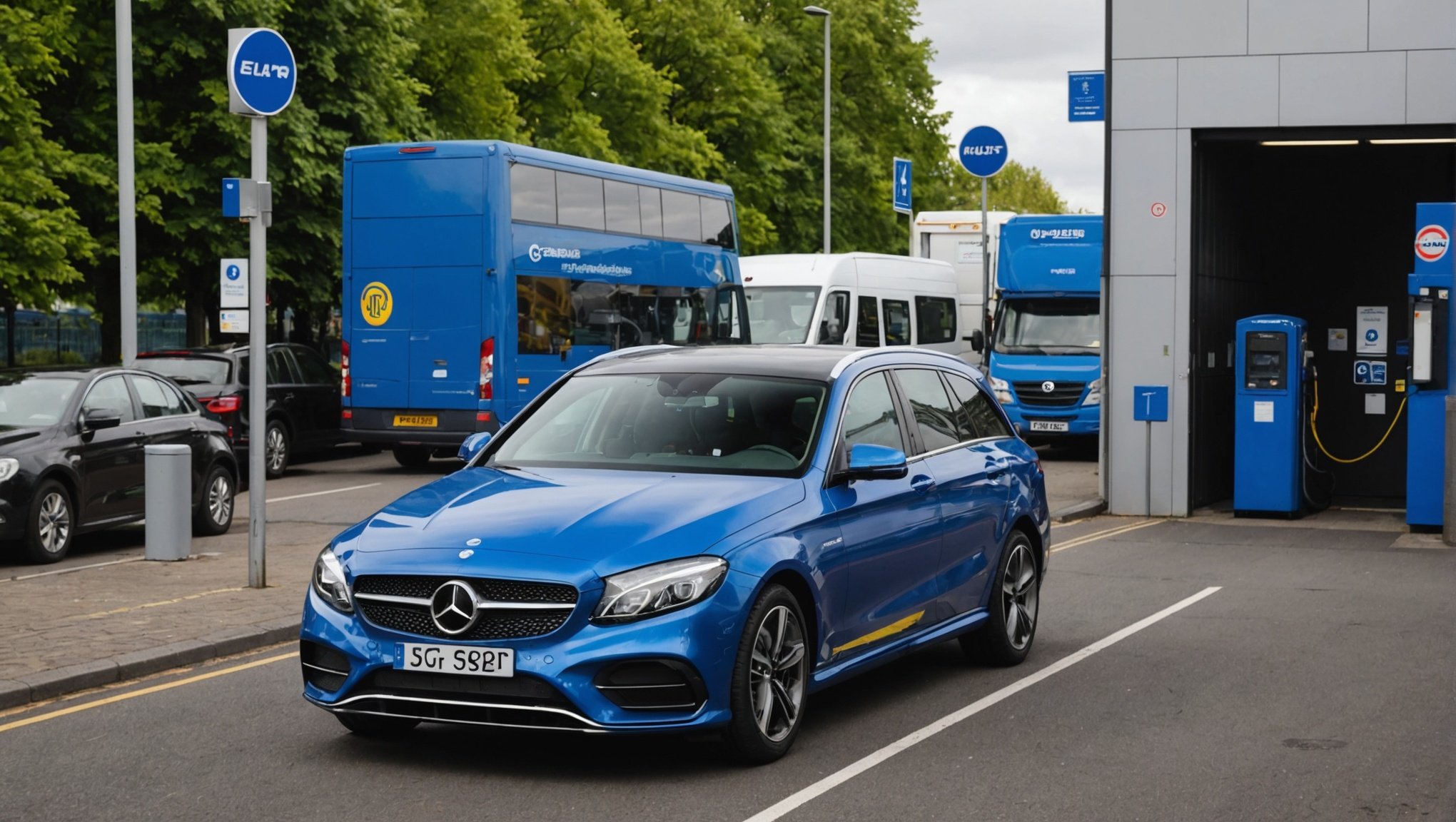As we step into a world increasingly conscious of its environmental footprint, the automobile industry is no exception. The Euro 7 emissions standards set to take effect in the UK mark a significant leap in this ongoing journey towards sustainability. Being aware of these changes and understanding how to ensure your vehicle’s compliance can not only help you contribute to a greener planet but can also save you from potential non-compliance fines. This article outlines what these new standards entail, their significance, and how you can ensure your vehicle meets them.
Understanding the Euro 7 Emissions Standards
The Euro 7 emissions standards, expected to be implemented from January 2025, are the latest in the series of European vehicle emission standards aimed at regulating air pollutants from vehicles. These standards will replace the current Euro 6 regulations, which have been in effect since September 2015.
This might interest you : What are the benefits and drawbacks of car subscription services in the UK?
The Euro 7 standards are set to be the strictest yet, aiming to limit harmful emissions from vehicles even further. Where Euro 6 focused on limiting diesel car emissions, with particular attention to nitrogen oxides (NOx), Euro 7 is expected to impose stricter limits on CO2 emissions and will apply to both diesel and petrol vehicles.
The Impact of Euro 7 on Your Vehicle
The implementation of Euro 7 standards will have profound implications for your vehicle, especially if it’s a diesel or older petrol model. Stringent emission limits mean that many current vehicles may not comply with the new standards. Non-compliant vehicles may face restrictions in certain low-emission zones or be subject to fines.
In the same genre : How to upgrade your vehicle’s infotainment system while complying with UK road safety laws?
For instance, diesel cars that do not meet the standards might not be allowed in specific traffic zones, known as clean air or low emission zones, where emission standards are strictly enforced. Similarly, older petrol vehicles that exceed emission limits may also be restricted.
How to Ensure Your Vehicle Complies with the Euro 7 Standards?
Ensuring your vehicle’s compliance with the Euro 7 standards will largely depend on its type and age. For new cars, car manufacturers will be responsible for meeting these standards. They will have to design and produce vehicles that emit within the defined limits. If you are planning to buy a new car after January 2025, it’s crucial to ensure that it meets the Euro 7 standards.
For existing vehicles, it might be a bit more challenging. If your vehicle is a newer model that complies with the Euro 6 standards, it might already be equipped to meet the Euro 7 regulations with minor, if any, modifications.
However, if your car is an older model or a diesel vehicle with high emission levels, you might have to consider upgrading your vehicle or installing emission reduction technologies. These could include things like diesel particulate filters for diesel cars or three-way catalytic converters for petrol vehicles.
Preparing for Euro 7: Tips and Strategies
While the Euro 7 standards might seem intimidating, especially for diesel car owners, there are several steps you can take to ensure your vehicle’s compliance. Firstly, consider getting your vehicle tested to understand its current emission levels. This can help you identify what changes, if any, you need to make.
Secondly, if your vehicle is older and has high emission levels, consider upgrading to a newer, more environmentally friendly model. Alternatively, you might want to explore retrofitting your existing vehicle with emission reduction technologies.
Lastly, stay informed about the latest updates regarding the Euro 7 emission standards. Regulations and standards can change over time, and being well-informed will help you take appropriate actions.
In conclusion, navigating the upcoming Euro 7 emissions standards may seem daunting, but with preparation and awareness, it can be manageable. By taking the necessary steps to ensure your vehicle’s compliance, you can contribute to a greener and cleaner environment.
Vehicle Upgrade and Retrofitting: A Route to Euro 7 Compliance
If your vehicle does not already comply with the upcoming Euro 7 emissions standards, you might need to consider an upgrade or retrofit. Upgrading your car to a newer model that is designed to meet these stricter standards is an effective solution, especially for owners of older petrol and diesel cars.
Newer models are generally more environmentally friendly, designed with state-of-the-art technology to keep emissions at a minimum. They often come with features like electric engines, hybrid systems, and advanced exhaust after-treatment systems that help reduce pollutants. Manufacturers are expected to focus more on these eco-friendly designs as the January 2025 Euro 7 implementation approaches.
However, buying a new car is not the only solution. Retrofitting your current vehicle with emission reduction technologies can be a cost-effective alternative. For instance, diesel vehicles can be fitted with diesel particulate filters that reduce particulate matter emissions. Petrol cars, on the other hand, can benefit from three-way catalytic converters which reduce nitrogen oxides, carbon monoxide, and hydrocarbon emissions.
Before retrofitting, it’s crucial to get professional advice on the best solutions for your car. Some vehicles may not be suitable for retrofitting, while others may require more comprehensive modifications. A professional can help determine the most effective and economical route towards compliance with the Euro 7 emission standards.
The upcoming Euro 7 emissions standards undoubtedly present a challenge to vehicle owners and manufacturers. However, it’s a necessary step towards creating a greener and more sustainable world. By reducing the emissions from our vehicles, we can help combat air pollution, one of the most pressing environmental issues we face today.
For vehicle owners, ensuring compliance with these standards might involve some changes, from buying a new car to retrofitting an older one. It might seem like a daunting task, but remember, it’s for the benefit of our environment and future generations.
Manufacturers, on the other hand, are presented with an opportunity to innovate and create vehicles that are not only efficient and powerful but also environmentally friendly. The Euro 7 standards are likely to drive the industry towards more sustainable solutions, like electric and hybrid vehicles.
The transition to Euro 7 emissions standards might be challenging, but it’s an essential part of our journey towards a more sustainable future. By understanding and taking steps to comply with these standards, you’re not just avoiding potential fines or restrictions – you’re also contributing to a cleaner, healthier world.











